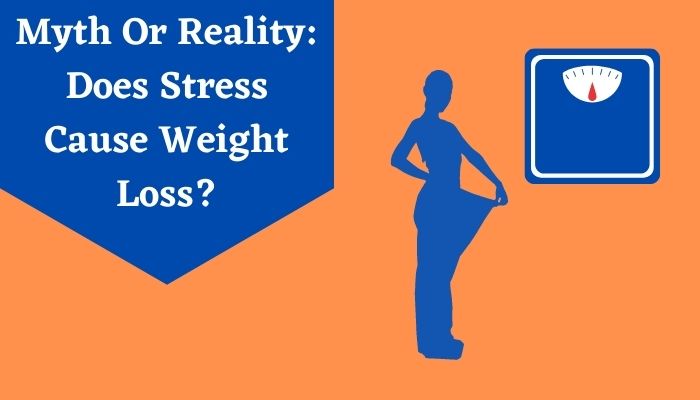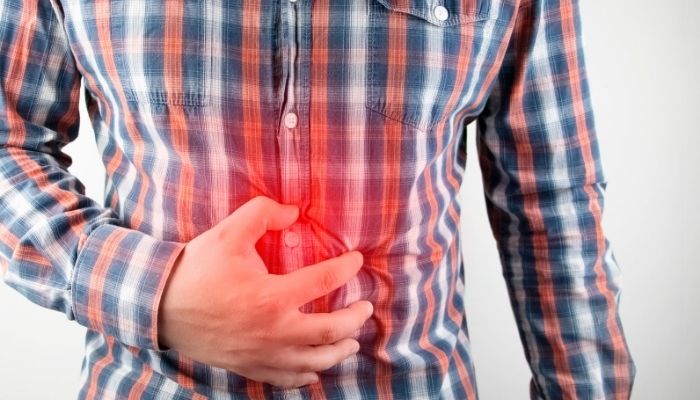Roshni works in an MNC in Bangalore and holds a respectable position in her office. But Roshni has a disturbed family life due to her abusive husband. Roshni has a very stressful life as she needs to balance between her family and professional life. Over the past few days, Roshni has noticed that she has lost a few pounds without any effort and is also having a continuous headache. While discussing with her best friend, she came to know it is due to excessive stress in her life. Roshni was confused regarding how does stress causes weight loss? She consulted a doctor who told her that stress and weight loss are correlated and stress is one of the reasons for unexplained weight loss. Let’s find out what are the reasons for weight loss due to stress.
Stress can not only affect a person’s mental health but also makes a huge impact on his/her physical health. In this steep-competitive era, stress is a common problem for all. Work, money, relationships, and lifestyle changes can give you stress in your life.
Stress affects people differently. Some may start overeating or others may experience a loss of appetite. In this article, we are going to discuss how stress impacts your body weight.
Signs of Weight Loss related to Stress
Stress is one of the reasons for abrupt weight loss. Apart from weight loss, other symptoms may include:- Headaches
- Indigestion
- Aches and pains
- Tense muscles
- Mood changes
- Fatigue
- Sleep problems
- Short-term memory
- Enhanced heart rate
- Loss of sexual interest or libido
Stress Weight Loss
Stress hits every portion or area of your body. While stressed, you are trying to engage yourself in different activities that worsen your body’s internal reaction to stress.Inflammation and Activation of Vagal Nerve
Poor dietary habits due to stress are responsible for inflammation and weight loss. The vagal nerve gets activated due to the inflammation. This nerve influences gut and metabolization processes.Activation of the Body’s Fight-or-Flight Response
When you are stressed, the sympathetic nervous system of your body releases epinephrine, also called adrenaline, from the adrenal glands. This epinephrine stimulates the body’s fight-or-flight response and inspires a person to fight off a looming threat. Epinephrine increases your heartbeat and also speeds up the breathing process. This may burn calories.Alteration of the HPA Axis
The Hypothalamic-Pituitary-Adrenal (HPA) Axis regulates the response of your body to stress that disturbs cortisol levels. When you are stressed, the pituitary gland sends signals to the adrenal glands to release cortisol. This hormone uplifts your body’s fuel for energy by discharging fatty acids and glucose from the liver.Cortisol controls your body’s immune response and minimizes inflammation. Chronic stress disrupts the function of the HPA axis. As a result, a change is observed in metabolism and dietary habits.
Gastrointestinal Distress
Stress disturbs the communication between the brain and gastrointestinal (GI) system. It makes your GI symptoms more prominent. Stress hits all parts of the GI system, including the esophagus (food pipe), stomach, and bowel.Some GI symptoms due to stress are:
- Heartburn or acid reflux
- Difficulty swallowing
- Gas
- Bloating
- Abdominal pain
- Nausea
- Vomiting
- Increased or decreased appetite
- Diarrhea
- Constipation
- Muscle spasms
All these symptoms may influence the process of weight loss.
How to Manage Stress?
You can implement various stress management strategies to minimize your stress level. Some effective strategies can be:- Breathing and relaxation techniques
- Meditating
- Exercising
- Listening to music
- Reading a storybook
- Getting sufficient sleep
- Talking to your friends and family members
- Practicing mindfulness
- Avoiding drugs and alcohol
By managing the eating habit, a person can control his/her stress level. Everyone should try to incorporate some wholesome foods into their diet regime.
- Omega-3 fatty acids to minimize the stress hormones
- Vitamin C also lessens your stress, boosts your immune system, and minimizes cortisol levels
- Try to include complex carbohydrate foods in your daily routine. These foods control your blood pressure and raise serotonin levels
- Magnesium minimizes fatigue and headaches and improves sleep quality
A person who has stress issues should avoid food like caffeine, as this can aggravate anxiety and tension.
When to Consult a Doctor?
If self-controlling techniques are not giving you results, then you must consult a doctor for further treatment.- A doctor may prescribe some medications to control anxiety and depression
- If you are getting stressed due to healthcare problems like blood pressure, you must take advice from your healthcare expert
- If you experience a sudden weight loss without much effort, you should consult a doctor. Weight loss is a primary sign for many underlying diseases
Stress-related symptoms that imply that you need a consultation from a doctor are:
- If you lost more than 5% of your body weight within 6–12 months
- Extreme fatigue
- Poor appetite
- Frequent vomiting
- Fever
- A change in bowel habits
- Using drugs or alcohol to overcome your stress
Can Stress Cause Weight Gain?
Stress affects everyone differently. Some people may gain weight due to stress. Stress can also lead to other problems like- Inadequate sleep
- Increased appetite
- Cravings for unwholesome foods
- Lack of motivation for physical activities
All these factors will make you gain a few pounds.
The Bottom Line
Physical activity is the utmost thing that minimizes your stress and also maintains your health. Exercise will lessen fatigue and improve cognitive function. Even a 5 minutes exercise improves sleep, uplifts your mood, and reduces stress.Very often, chronic stress is responsible for abrupt weight loss or gain due to its influence on bodily processes. Stress disrupts the production of stress hormones and your GI system that may lead to some appetite changes. A person can manage stress by implementing several self-help techniques. But if things are not improved, then you must consult a doctor.




